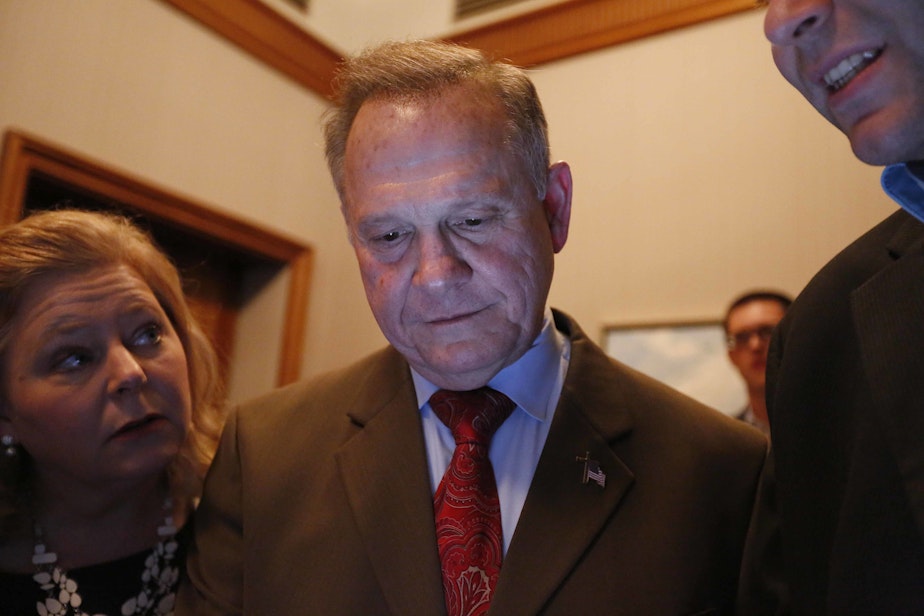On sexual assault, our standards are higher for Hollywood than for Washington

Harvey Weinstein, Louis C.K., Charlie Rose, and others were swiftly fired after allegations against them broke. But Roy Moore came within 1.5 percent of being elected to the U.S. Senate. Supreme Court Justice Clarence Thomas is still on the bench. And Donald Trump is still in the White House, as was Bill Clinton following his own transgressions.
When it comes to claims of sexual misconduct, why are media figures being held to a higher standard than public officials?
To answer that question, Bill Radke sat down with constitutional law professor and former assistant U.S. attorney Kim Wehle. She wrote a piece for The Hill in late November called "Why Hollywood is better at purging alleged sexual predators than politics."
They discussed the constitutionality of expulsion from Congress, a question that will remain untested with Moore’s loss. But she argues that these things will keep happening as long as there is no accountability. “Would you park in front of the fire hydrant if there were no consequences?” she asked rhetorically.
Hollywood and the media were hit by a consumer backlash that made predators a liability, so they were fired. But elected bodies are a different story.
“They don’t have the power to give themselves a pink slip,” Wehle said. “Voters do.” And last night in Alabama they did just that – suggesting that politics may be catching up to show business after all.

